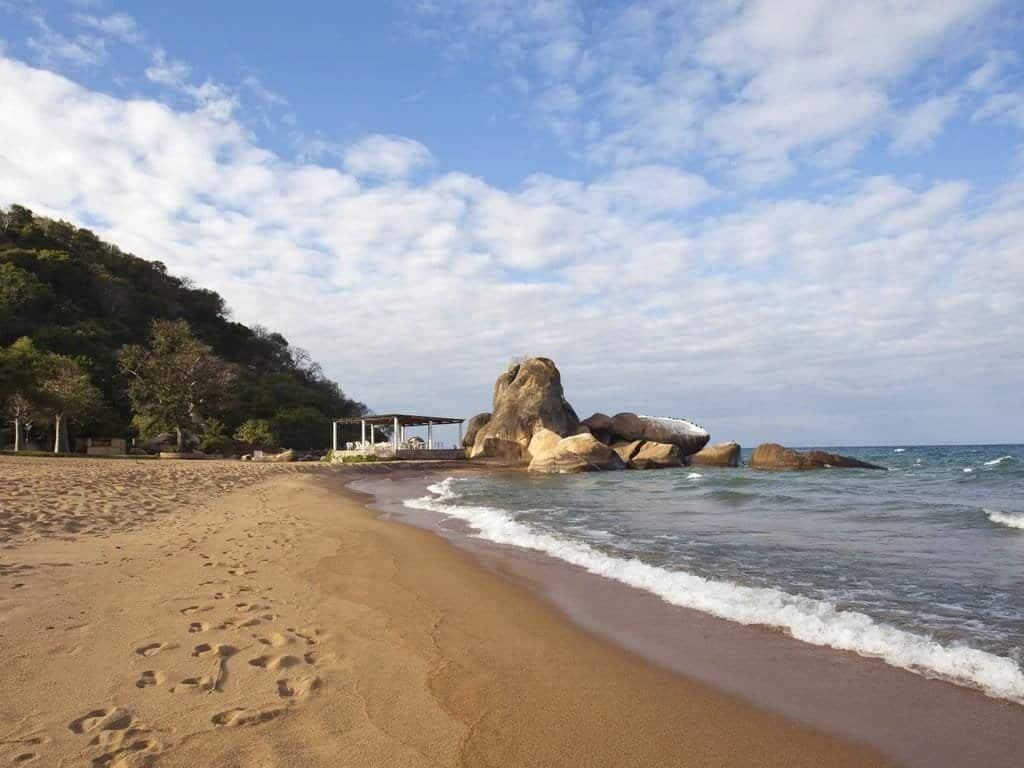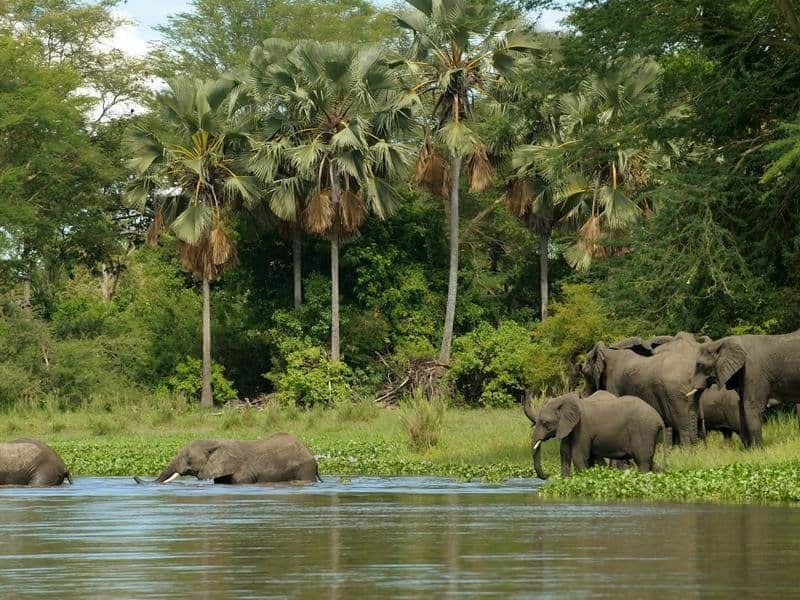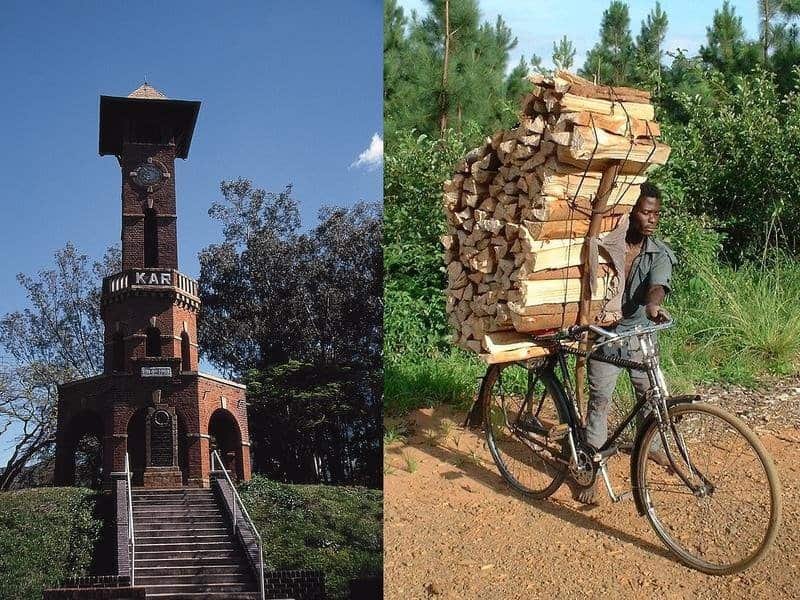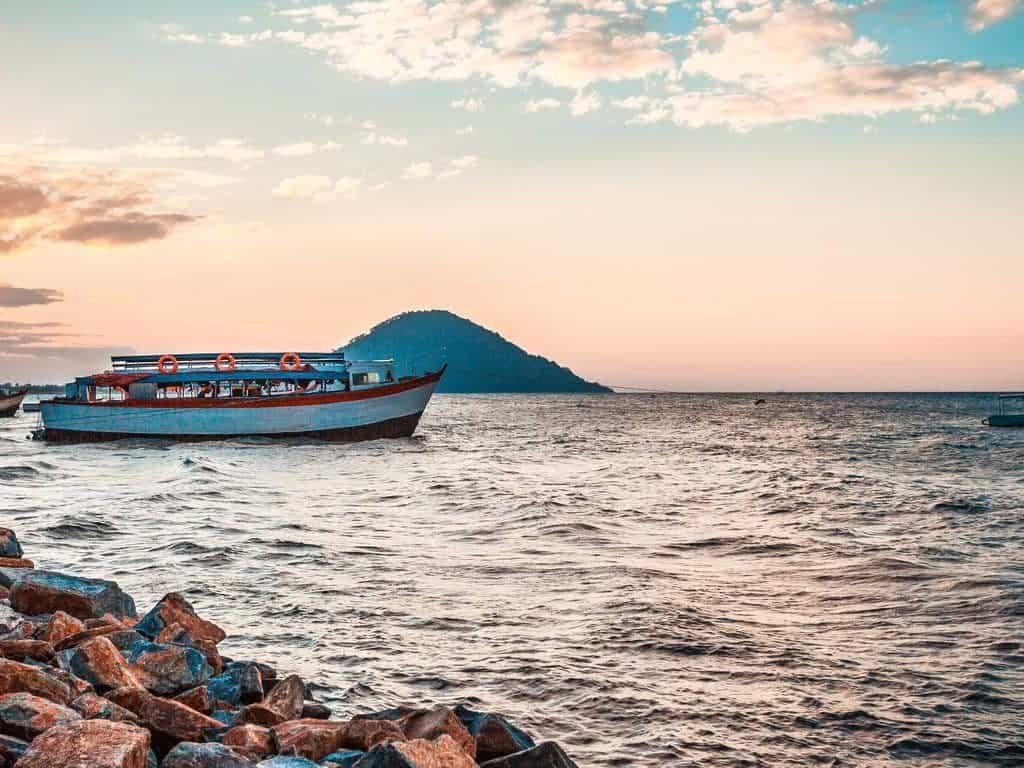Why should Grown-up Travellers visit Malawi? As a travel designer, I specialise in creating fully personalized trips to Africa for discerning travellers who want more than just a cookie-cutter vacation.
If you’re looking for a destination that offers stunning natural beauty, rich culture, friendly people, and plenty of adventure, then Malawi is the place for you. Malawi is one of Africa’s smallest yet most beautiful countries, and quite possibly the continent’s most underrated travel destination, as I found out when I visited.
But don’t take my word for it. Let me show you why Malawi should be on your to-visit list with these 13 compelling reasons:
1. Lake Malawi: A freshwater paradise

Lake Malawi is the star attraction of Malawi. It’s Africa’s third-largest lake and one of the world’s natural wonders. It covers about 20% of the country’s surface area and boasts over 1,000 species of fish, more than any other lake in the world.
Lake Malawi is not only a biodiversity hotspot, but also a haven for relaxation and recreation. You can enjoy a variety of activities on and around the lake, such as:
- Snorkeling and diving among colorful cichlids and other fish
- Kayaking, sailing, or cruising along the scenic shoreline
- Hiking or biking through the lush forests and hills
- Camping or glamping on one of the many islands
- Relaxing on the sandy beaches or at a luxury lodge
Lake Malawi is also home to some of the most charming and hospitable people you’ll ever meet. The local fishermen, villagers, and guides will welcome you with a smile and share their stories and traditions with you.
2. Wildlife safari: A hidden gem

Malawi may not be as famous as its neighbors for wildlife viewing, but it has some hidden gems that will surprise and delight you. Malawi has 11 national parks and wildlife reserves that offer diverse habitats and species.
You can see elephants, hippos, crocodiles, antelopes, zebras, lions, leopards, cheetahs, rhinos, and more in these parks. Some of the best places to go on safari in Malawi are:
- Liwonde National Park: The most popular park in Malawi, Liwonde offers excellent game viewing along the Shire River and in the mopane woodlands. You can also enjoy boat safaris, walking safaris, and night drives here.
- Majete Wildlife Reserve: A success story of conservation and community involvement, Majete has been restored from a poached-out area to a thriving wildlife sanctuary. You can see all of the Big Five here, as well as many other animals and birds.
- Nyika National Park: The largest park in Malawi, Nyika is a unique montane plateau with rolling grasslands, pine forests, waterfalls, and wildflowers. You can see zebra, eland, roan antelope, leopard, hyena, jackal, and over 400 bird species here. You can also explore Nyika on horseback or mountain bike.
3. Culture and history: A warm heart
Malawi is known as the Warm Heart of Africa for its friendly and hospitable people. Malawians are proud of their culture and history and eager to share it with visitors.
You can learn about Malawi’s culture and history by:
- Visiting museums such as the Lake Malawi Museum in Mangochi or the Cultural & Museum Centre Karonga
- Exploring historical sites such as Livingstonia Mission or Mua Mission
- Joining cultural tours or village visits to interact with local communities
- Participating in festivals or events such as Lake of Stars Music Festival or Mulanje Porters Race
- Sampling local cuisine such as nsima (maize porridge), chambo (tilapia fish), or kachumbari (tomato salad)
Malawi is also a melting pot of different ethnic groups and influences. You can see this diversity in the languages spoken (over 16), the religions practiced (Christianity, Islam, traditional beliefs), and the arts and crafts produced (wood carving, pottery, basketry).
4. Adventure sports: A thrill seeker’s dream
If you’re looking for some adrenaline-pumping activities in Malawi, you won’t be disappointed. Malawi offers a range of adventure sports that will challenge and excite you. Some of the best adventure sports in Malawi are:
- Paragliding: Fly over the stunning landscapes of Malawi and enjoy a bird’s eye view of the lake, mountains, and valleys. You can paraglide from Zomba Plateau, Dedza Mountain, or Mulanje Massif with experienced instructors.
- Rock climbing: Test your skills and stamina on the rugged rocks of Malawi. You can rock climb on the granite domes of Mulanje Massif, the basalt cliffs of Dedza Mountain, or the limestone crags of Nkhoma Mountain.
- Mountain biking: Pedal your way through the scenic trails and tracks of Malawi. You can mountain bike on the Nyika Plateau, the Viphya Highlands, or the Zomba Plateau. You can also join organized tours or races such as the Lake Malawi Cycle Challenge or the Orbis Challenge.
- White-water rafting: Experience the thrill of riding the rapids of Malawi’s rivers. You can white-water raft on the Shire River, the Ruo River, or the North Rukuru River. You can also enjoy kayaking, canoeing, or tubing on these rivers.
5. Tea plantations: A taste of elegance

Malawi is one of Africa’s largest tea producers and exporters. The country has over 40 tea estates that cover thousands of hectares of land. The tea plantations are located in the southern highlands of Malawi, where the climate and soil are ideal for growing tea.
The tea plantations are not only a source of income and employment for many Malawians, but also a destination for tourists who want to experience a taste of elegance and tranquility. You can visit the tea plantations and enjoy:
- Tea tasting: Sample different varieties and flavors of tea, from black to green to herbal. You can also learn about the history and process of tea production in Malawi.
- Tea tours: Explore the tea fields and factories and see how tea is grown, harvested, processed, and packed. You can also interact with the tea workers and learn about their lives and culture.
- Tea accommodation: Stay in a colonial-style lodge or cottage surrounded by lush greenery and serene views. You can also enjoy delicious meals, spa treatments, and other amenities at these lodges.
- Tea activities: Engage in some fun and relaxing activities on the tea estates, such as hiking, biking, golfing, fishing, or horse riding.
Some of the best tea estates to visit in Malawi are:
| Estate | Location | Highlights |
|---|---|---|
| Satemwa | Thyolo | One of the oldest and largest tea estates in Malawi; offers tea tasting, tours, accommodation, and activities |
| Huntingdon House | Thyolo | A historic mansion turned into a luxury lodge; offers tea tasting, tours, accommodation, and activities |
| Ngapani | Mulanje | A family-owned tea estate; offers tea tasting, tours, accommodation, and activities |
| Lujeri | Mulanje | A scenic tea estate at the foot of Mulanje Massif; offers tea tasting, tours, accommodation, and activities |
6. Birdwatching: A feathered delight
Malawi is a birdwatcher’s paradise, with over 650 bird species recorded in the country. You can find birds in almost every habitat, from wetlands to forest to Afro-montane highlands. Some of the endemic or near-endemic birds you can see in Malawi are:
- Thyolo alethe: A small brown bird with a white eye-ring and a rufous tail; found only in a few patches of forest in southern Malawi and northern Mozambique
- White-winged apalis: A black-and-white warbler with a yellow belly and a white wing patch; found only in montane forests in southern Malawi and northern Mozambique
- Lilian’s lovebird: A small green parrot with a red face and chest; found in dry woodlands near water sources
- Böhm’s bee-eater: A colorful bee-eater with a green head, chestnut back, yellow throat, and blue belly; found in open woodlands and savannas
Some of the best places to go birdwatching in Malawi are:
- Nyika National Park: The highest diversity of birds in Malawi, with over 400 species recorded; look for Denham’s bustard, blue swallow, mountain marsh widowbird, red-winged francolin, and more
- Liwonde National Park: The best place to see waterbirds in Malawi, with over 300 species recorded; look for African skimmer, white-backed night heron, Pel’s fishing owl, African pygmy goose, and more
- Dzalanyama Forest Reserve: A montane forest reserve near Lilongwe, with over 250 species recorded; look for olive-headed weaver, bar-tailed trogon, yellow-streaked greenbul, white-tailed crested flycatcher, and more
- Lake Chilwa: A shallow lake and wetland of international importance, with over 160 species recorded; look for lesser flamingo, lesser jacana, Madagascar squacco heron, African spoonbill, and more
7. Hiking and trekking: A walker’s wonderland

Malawi is a walker’s wonderland, with plenty of trails and routes to suit every level of fitness and interest. You can hike through forests, hills, valleys, and mountains, enjoying the scenery and wildlife along the way. Some of the best places to go hiking and trekking in Malawi are:
- Zomba Plateau: A massive table mountain with lush forested slopes and panoramic views; you can hike to waterfalls, dams, viewpoints, and peaks
- Mount Mulanje: The highest mountain in Malawi and one of the most impressive in Africa; you can hike to the summit of Sapitwa (3002m), or explore the lower slopes and valleys
- Ntchisi Forest Reserve: A pristine rainforest reserve with ancient trees and ferns; you can hike to waterfalls, rock pools, viewpoints, and villages
- Viphya Highlands: A range of rolling hills and pine forests; you can hike to lakes, rivers, caves, and wildlife areas
8. Fishing: A reel deal
Malawi is a great destination for fishing enthusiasts, with plenty of opportunities to catch a variety of fish in different settings. You can fish in Lake Malawi, rivers, dams, or streams, using different methods such as fly-fishing, spinning, or trolling. Some of the fish you can catch in Malawi are:
- Chambo: The most popular fish in Malawi, a type of tilapia that can grow up to 4kg; found in Lake Malawi and some rivers
- Mcheni: A large predatory fish that can grow up to 15kg; found in Lake Malawi and some rivers
- Mpasa: A migratory fish that can grow up to 10kg; found in Lake Malawi and some rivers during the rainy season
- Nkholokolo: A small but tasty fish that can grow up to 500g; found in Lake Malawi and some rivers
Some of the best places to go fishing in Malawi are:
- Cape Maclear: A popular fishing spot on Lake Malawi, with plenty of lodges and guides available; you can catch chambo, mcheni, nkholokolo, and more
- Liwonde National Park: A fishing spot on the Shire River, with some lodges offering fishing safaris; you can catch chambo, mcheni, catfish, tigerfish, and more
- Nkhotakota Wildlife Reserve: A fishing spot on the Bua River, with some lodges offering fishing excursions; you can catch mpasa, chambo, catfish, yellowfish, and more
- Zomba Plateau: A fishing spot on the dams on the plateau, with some lodges offering fishing equipment; you can catch trout, bass, bream, and more
9. Local cuisine: A mouth-watering experience
Malawi is a country with a rich and diverse culinary heritage. You can taste the influences of different cultures and regions in the local cuisine. Some of the dishes you can try in Malawi are:
- Nsima: The staple food of Malawi, a thick porridge made from maize flour; eaten with different relishes such as beans, vegetables, meat, or fish
- Chambo: The most popular fish in Malawi.- Chambo: The most popular fish in Malawi, a type of tilapia that can be grilled, fried, or stewed; served with nsima, rice, or chips
- Kachumbari: A fresh salad made from tomatoes, onions, chili, and lemon juice; served as a side dish or a snack
- Nthochi: A sweet bread made from bananas, flour, sugar, and eggs; served as a breakfast or a dessert
- Mbatata: A cookie made from sweet potatoes, flour, sugar, and cinnamon; served as a snack or a dessert
Some of the best places to try local cuisine in Malawi are:
- Four Seasons Nursery and Coffee Shop: A cozy cafe in Lilongwe that serves delicious breakfasts, lunches, and cakes; try the nthochi bread, the mbatata cookies, or the chambo sandwich
- Kaya Papaya: A trendy restaurant in Blantyre that serves fusion cuisine with local and international flavors; try the nsima balls with peanut sauce, the chambo curry, or the kachumbari salad
- Makuzi Beach Lodge: A beachfront lodge on Lake Malawi that serves fresh seafood and local dishes; try the chambo platter, the nsima with fish stew, or the banana fritters
- Zomba Forest Lodge: A forest lodge on Zomba Plateau that serves home-cooked meals with organic ingredients; try the trout with lemon butter sauce, the vegetable lasagna, or the apple crumble
10. Local music: A rhythmic treat
Malawi is a country that has a rich and diverse musical heritage. You can hear the influences of different genres and cultures in the local music, such as reggae, gospel, jazz, hip hop, and traditional. Some of the instruments you can hear in Malawi are:
- Mbira: A thumb piano made from metal keys attached to a wooden board; produces a melodic and soothing sound
- Nsansi: A rattle made from a dried gourd filled with seeds or beads; used to create a rhythmic accompaniment
- Malimbe: A xylophone made from wooden bars suspended over gourds; produces a bright and resonant sound
- Valimba: A large xylophone made from bamboo tubes; produces a deep and powerful sound
Some of the best places to listen to local music in Malawi are:
- Jacaranda Cultural Centre: A cultural hub in Blantyre that hosts live music events, art exhibitions, and workshops; features local and international artists from various genres
- Mibawa Cafe: A cozy cafe in Lilongwe that hosts live music nights, poetry readings, and comedy shows; features local and emerging artists from various genres
- Nkopola Lodge: A beachfront lodge on Lake Malawi that hosts the annual Lake of Stars Festival; features local and international artists from various genres
- Mzuzu Academy: A school in Mzuzu that hosts the annual Tumaini Festival; features local and international artists from various genres11. Festivals and events: A celebration of life
Malawi is a country that loves to celebrate life. You can find festivals and events throughout the year that showcase the culture, music, art, sport, and spirit of Malawi. Some of the festivals and events you can attend in Malawi are:
- Lake of Stars Festival: The biggest music festival in Malawi, held annually on the shores of Lake Malawi; features local and international artists from various genres
- Mulanje Porters Race: A challenging mountain race that attracts hundreds of runners every year; covers 25km on the slopes of Mount Mulanje
- Blantyre Arts Festival: A cultural festival that promotes arts and creativity in Malawi; features performances, exhibitions, workshops, and seminars
- Sand Music Festival: A music festival that celebrates sand as a symbol of unity and diversity; features local and international artists from various genres
- Tumaini Festival: A humanitarian festival that aims to promote peace and social cohesion among refugees and host communities; features performances, workshops, sports, and games
11. Local markets: A bargain hunter’s dream
Malawi is a country that offers plenty of shopping opportunities for bargain hunters. You can find local markets in every town and city that sell everything from fresh produce to handicrafts to souvenirs. Some of the things you can buy in Malawi are:
- Wood carvings: Malawi is famous for its wood carvings, especially the Malawi chairs, which are intricately carved from a single piece of wood; you can also find masks, statues, animals, and chess sets
- Pottery: Malawi has a long tradition of pottery making, using clay from the lake and rivers; you can find pots, bowls, plates, cups, and vases in various shapes and colors
- Basketry: Malawi has a variety of basketry styles, using materials such as bamboo, palm leaves, grass, and sisal; you can find baskets, mats, hats, bags, and trays in various patterns and designs
- Textiles: Malawi produces some of the finest textiles in Africa, using cotton, silk, and chitenje (printed fabric); you can find clothes, scarves, tablecloths, bedspreads, and curtains in various colors and prints
Some of the best places to go shopping in Malawi are:
- Lilongwe Craft Market: A large market in the capital city that sells a wide range of handicrafts and souvenirs; you can bargain with the vendors and find some unique items
- Mzuzu Market: A bustling market in the northern city that sells fresh produce, clothes, electronics, and more; you can mingle with the locals and experience the daily life
- Dedza Pottery: A pottery workshop and shop in the southern town that sells high-quality pottery products; you can also watch the potters at work and join a pottery class
- Likoma Island: An island on Lake Malawi that sells beautiful textiles and embroidery; you can also visit the St Peter’s Cathedral and enjoy the beach
12. Volunteering: A rewarding experience
Malawi is a country that welcomes volunteers who want to make a positive difference in the lives of its people. You can find many opportunities to volunteer in Malawi, depending on your skills, interests, and availability. Some of the areas you can volunteer in Malawi are:
- Education: You can volunteer as a teacher or assistant in schools, orphanages, or community centers; you can help with English, math, science, art, or sports
- Health: You can volunteer as a nurse or assistant in clinics, hospitals, or health centers; you can help with basic health care, HIV/AIDS awareness, or maternal health
- Conservation: You can volunteer as a researcher or assistant in wildlife reserves or conservation projects; you can help with wildlife monitoring, data collection, or community outreach
- Community development: You can volunteer as a facilitator or assistant in local organizations or projects; you can help with income generation, water and sanitation, or women empowerment
Some of the best organizations to volunteer with in Malawi are:
- Ripple Africa: A grassroots organization that works in education, health, and environment in northern Malawi; offers short-term and long-term volunteering opportunities
- Lilongwe Wildlife Trust: A wildlife conservation organization that runs a wildlife center and several projects in central Malawi; offers short-term and long-term volunteering opportunities
- Responsible Safari Company: A social enterprise that organizes tailor-made volunteering trips for individuals and groups in southern Malawi; offers various volunteering opportunities
- Butterfly Space: A community-based organization that runs an eco-lodge and several projects on Likoma Island; offers short-term and long-term volunteering opportunities.
13. Malawi gin: A smooth sip
Malawi is a country that produces one of the finest gins in Africa. Malawi gin is a smooth and aromatic gin that is distilled from sugar cane and flavored with juniper berries, coriander seeds, and other botanicals. It has been produced since 1965 and has won several awards.
Malawi gin is not only a delicious drink, but also a symbol of Malawi’s history and identity. It was first made during the colonial era, when sugar cane was grown by British settlers. It was later adopted by the locals, who mixed it with tonic water to ward off malaria. It became a popular drink among Malawians of all backgrounds and classes, and a source of pride and unity.
You can enjoy Malawi gin in various ways, such as:
- Gin and tonic: The classic way to drink Malawi gin, with ice, tonic water, and a slice of lemon or lime
- Gin and ginger: A refreshing way to drink Malawi gin, with ice, ginger ale, and a slice of ginger or lemon
- Gin and juice: A fruity way to drink Malawi gin, with ice, pineapple juice, orange juice, or passion fruit juice
- Gin cocktail: A creative way to drink Malawi gin, with ice, soda water, sugar syrup, mint leaves, cucumber slices, or other ingredients
Some of the best places to drink Malawi gin are:
- Kumbali Country Lodge: A rustic lodge in Lilongwe that has a cozy bar and lounge; serves Malawi gin and other drinks
- Chez Maky: A chic restaurant in Blantyre that has a stylish bar and terrace; serves Malawi gin and other drinks
- Makokola Retreat: A luxury resort on Lake Malawi that has a poolside bar and restaurant; serves Malawi gin and other drinks
- Mushroom Farm: An eco-lodge on Livingstonia that has a stunning view of Lake Malawi; serves Malawi gin and other drinks
Conclusion

Malawi is a destination that has something for everyone. Whether you’re looking for a relaxing beach holiday, a wildlife safari adventure, a cultural immersion experience, or a tea plantation escape, you’ll find it in Malawi.
If you’re interested in visiting Malawi for your next holiday, contact me at The Grown-up Travel Company. I’ll design a fully personalized trip for you that suits your preferences, budget, and style. You can check out a sample itinerary here which combines Malawi and Zambia, or if you want to really explore the warm heart of Africa then I recommend looking at this self-drive proposal…
Don’t miss this opportunity to discover one of Africa’s most beautiful and friendly countries.
